Alright – so today we’ve got the honor of introducing you to Caitlin Lowry. We think you’ll enjoy our conversation, we’ve shared it below.
Alright, Caitlin thanks for taking the time to share your stories and insights with us today. If you had a defining moment that you feel really changed the trajectory of your career, we’d love to hear the story and details.
Truth be told, I never planned to become a therapist. In fact, I started college pursuing a degree in business with the full intention of starting either a wedding venue or a doggy-daycare.
Life just had other plans.
As a child, I dreamed of working with horses. I planned to ride professionally in the Olympics and thought I would become a horse trainer. While I was a successful young equestrian competing on the Cal-Western Appaloosa Horse Circuit, the Olympics were never in my future.
In high school I had my first psychology class and I remember learning so much and enjoying every minute. Around that time, our family tragically lost my oldest brother’s best friend to suicide. It made me take a deeper look at mental health. I couldn’t wrap my head around how someone who always seemed so happy could hide so much pain and feel they had no other options than to take their own life. I wanted to make sense of the unthinkable.
Then, as a senior, I had a very special teacher named Mr. Stanaway. He pointed out that I was skilled at connecting peoples’ stories and finding meaning in what they shared. He told me I was “really great at making connections” and that I should consider becoming a counselor.
I scoffed at first thinking I had never really cared for any of the school counselors at my own high school, but after starting college with plans to be an entrepreneur, I began taking more and more psychology classes. I was fascinated learning more about how our minds work and why we do the things we do. I wanted to help people. I changed my major to psychology only to realize a bachelors in psychology was not going to get me very far. Before I knew it, I was preparing to apply to graduate school to become an academic counselor.
This is where fate really stepped in.
That year, my college was incredibly impacted and I was unable to get into a prerequisite class I desperately needed for my graduate program application. To make matters worse, I had spent three weeks crashing the course only to have the teacher mistakenly add a different student in my place even though I was second on the waitlist. I met with the director of the psychology department and explained my predicament. He graciously arranged for me to meet with the director of the K-12 Counseling program to see if I could take the prerequisite concurrently and not have to delay starting graduate school.
I walked into the director’s office only to be told that the man I was meeting with was NOT director of the K-12 program. He was the director of the MFT program at California State University of Fresno. I didn’t even know what that program was. He asked, “Why do you want to be in the K-12 program when you could be a LMFT?”
“A L-M-F what?” I replied.
He explained that the program trains students to become Licensed Marriage and Family Therapists. I laughed and said there was no way I wanted to be a marriage counselor. He explained that I could work with people of any age, in multiple settings, and I could get my Pupil Personnel Services credential and still work in schools if I wanted to.
And just like that, I was sold. I just had to complete that prerequisite first.
I ended up enrolling in the class I needed with a different professor the next semester. I was just a few weeks into her class when I learned she was certified in providing Equine Assisted Psychotherapy through the Equine Assisted Growth And Learning Association (EAGALA).
Wait. What?! People are doing therapy WITH horses?
In 2009, the field of Equine Assisted Services was very much in its infancy, but I was enthralled. I began researching more and more and dreamt of working with people and horses in this field together. I interned and volunteered at several sites in the area. It was at a program called Circle of the Horse where I began to truly see the power of this work. We worked with children from the Tachi-Yokut reservation and the changes they made through working with the horses was incredible.
After graduation, jobs were scarce. It took me eight months to find my first job as a therapist. I worked for a year for a non-profit where I was severely underpaid and placed as a therapist in a high school without the level of supervision an Associate MFT requires. Then I transitioned to working for a practice as a community-based mental health clinician. I was traveling to schools and homes treating children and families involved with the child welfare system. I soon found out I was passionate about healing trauma.
My husband and I started a family, and four years passed before I knew it. I was fully licensed as a LMFT when I walked into my four year review with our wonderful clinical director. She asked how I was doing and tears filled my eyes. I couldn’t do it anymore. I loved the people I worked for, but the brokenness of the foster care system was breaking me too. My boss asked how they could support me.
I mentioned that at my initial interview they asked where I saw myself in five years and I had said, “Ideally, I’ll have my own ranch and do Equine Assisted Psychotherapy, but odds are I’ll still be working here.”
It was the call to action I needed. That December I enrolled to become certified in Equine Assisted Psychotherapy through EAGALA. Two months later, I launched my private practice, Tailwinds Therapy, to begin offering Equine Assisted Services here in Fresno County.
I spent 2019 building my caseload and fine tuning my practice. I had to make a few big shifts in the early months. but I celebrated my last day as an employee on 12/6/2019 with full intention of making 2020 my year. Clearly, 2020 had other plans. After more pivoting, recalibrating, and adjusting, I expanded into a group practice in January 2021 and our group now offers therapy services in office, online, and out with the horses.
While I’m still learning to navigate all that comes with entrepreneurship, it is hard to put into words the fulfillment I feel when I see peoples’ lives change through connection with these incredible animals. Being an entrepreneur comes with its own struggles, but I am so grateful that I took the leap of faith to follow my dream. It amazes me to this day to see how each little step along the way led me here. Sometimes life can feel like it is completely derailing us, but it isn’t. We are simply being redirected closer to where we are meant to be.
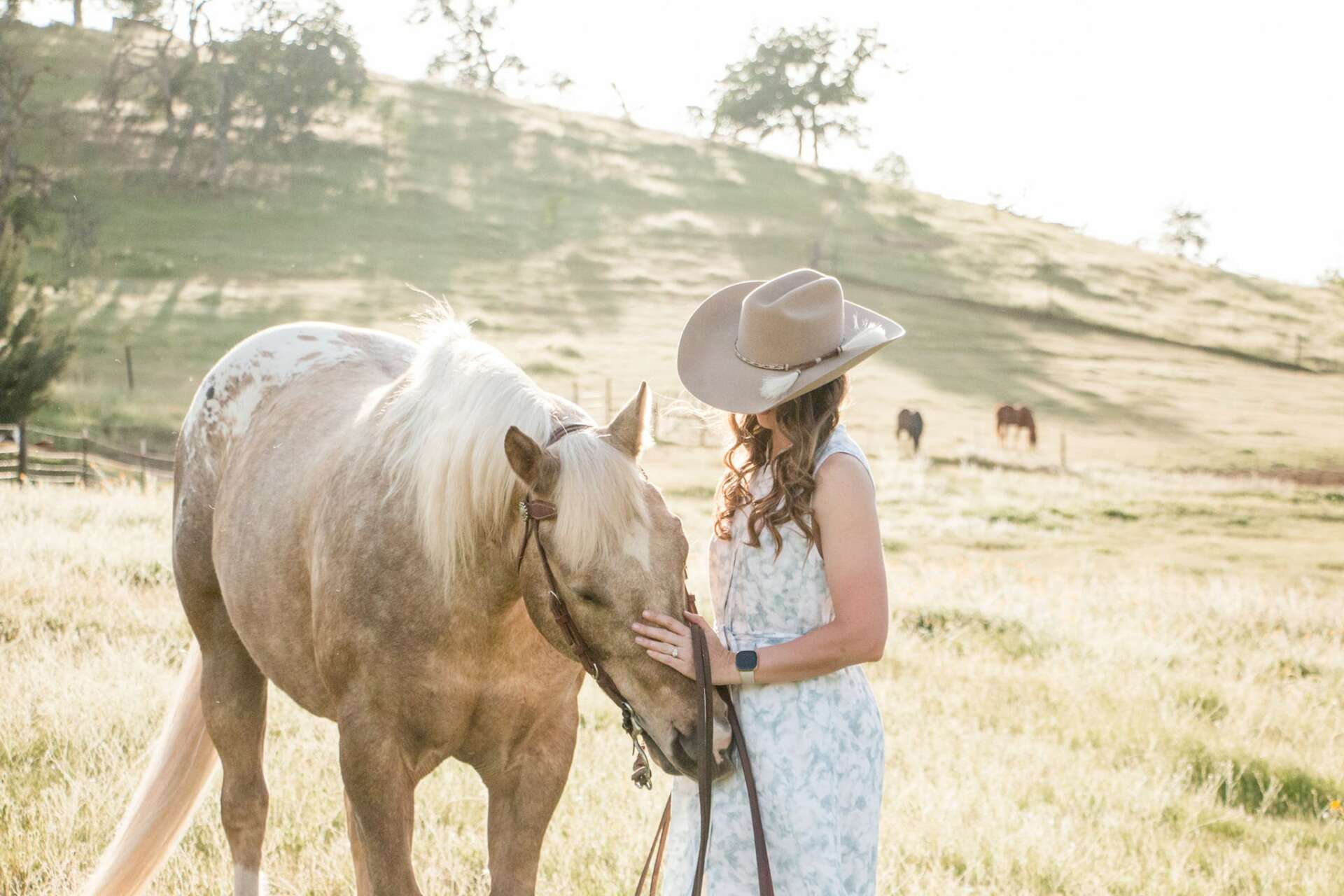
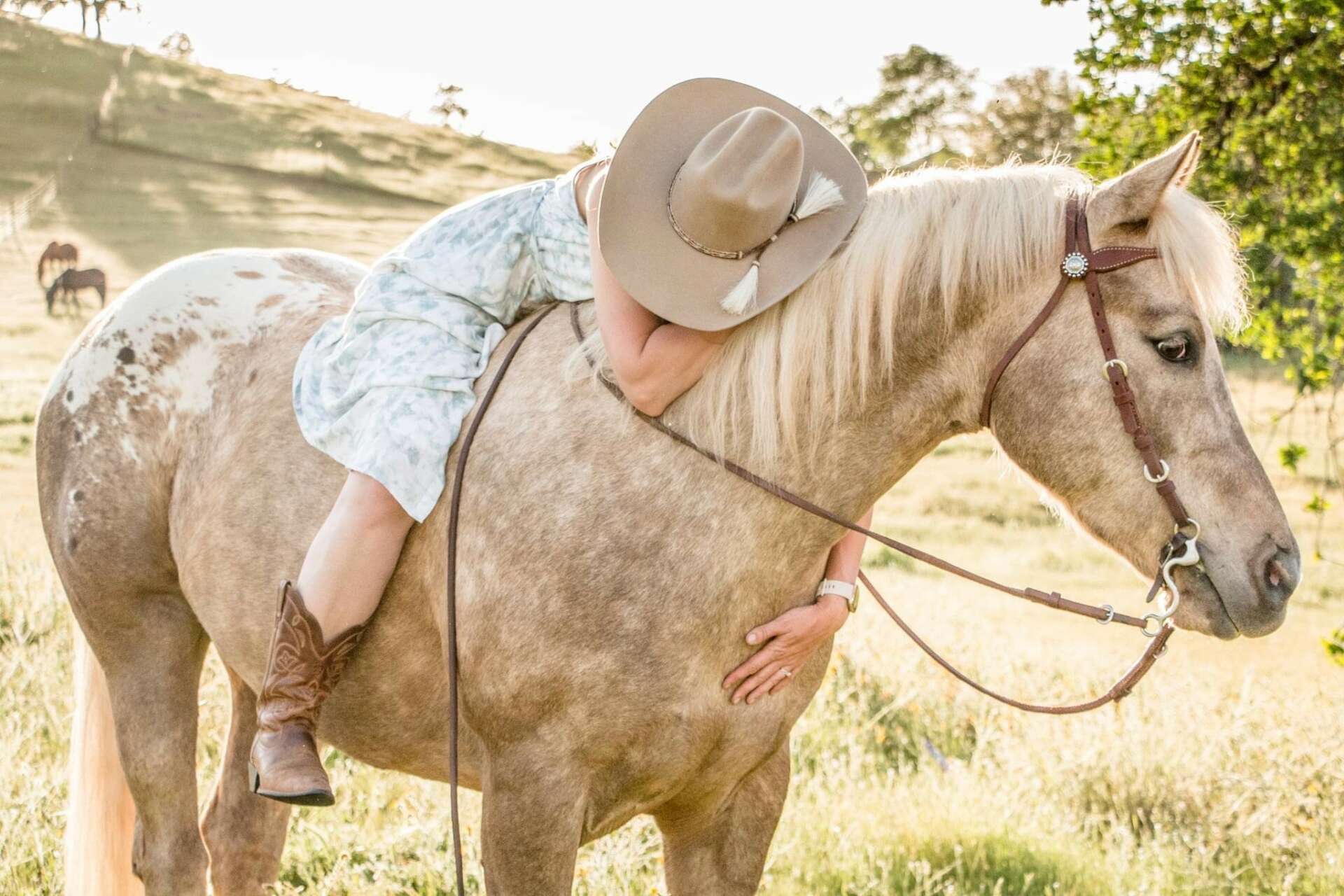
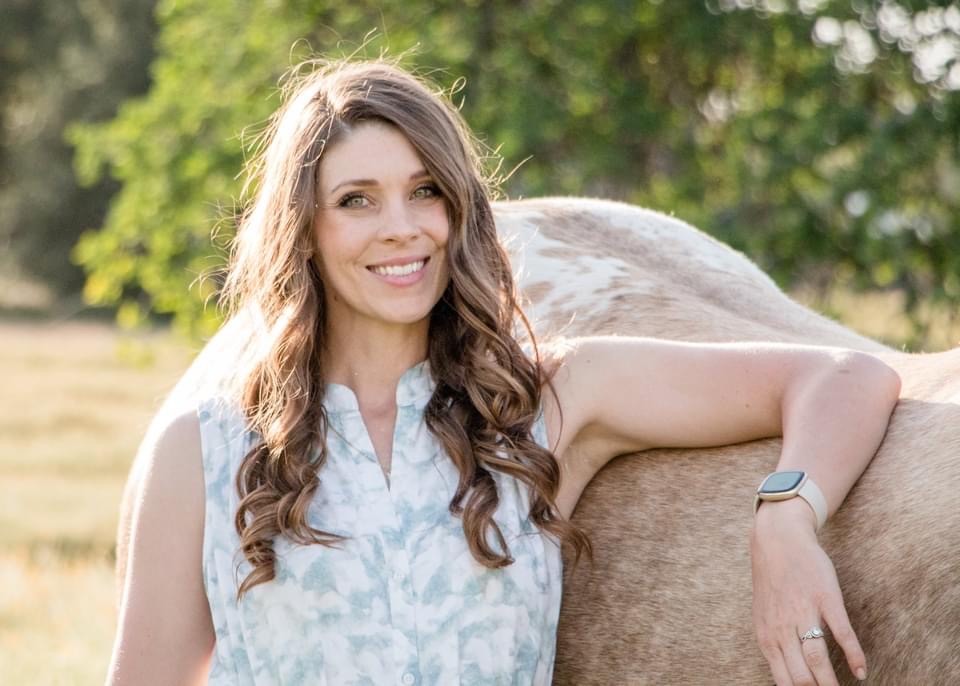
Awesome – so before we get into the rest of our questions, can you briefly introduce yourself to our readers.
Tailwinds Therapy is a mental health therapy practice located in Clovis, California that offers therapy services in office, online, and with horses. When people hear that my practice offers Equine Assisted Psychotherapy, they often think that means we do therapy FOR horses. It always makes me laugh. While we do work with horses, the therapy we provide is still for the people we serve.
The field of Equine Assisted Services is still in its infancy overall, and as a result, many people do not fully understand the different types of services offered within the field. While people have been working with animals for therapeutic benefit for centuries, the field of Equine Assisted Services has really only been around for about twenty years.
Most Equine Assisted Services are provided with a team approach. Depending on the service, a specialist in their field typically partners with an equine specialist who is an expert in understanding horse behaviors, horse management, and equine welfare. This allows the team opportunity to be mindful of both the needs of the client or participant and the needs of the horse(s) in session.
Equine Assisted Services encompasses a field where providers partner with horses to provide their service. It is different from traditional horsemanship, riding lessons, and horse training. There are three main categories of Equine Assisted Services: 1. Therapy services, 2. Horsemanship, and 3. Equine Assisted Learning.
1. Therapy Services:
The first category of therapy services includes psychotherapists, physical therapists, occupational therapists, speech-language pathologists, and other licensed professionals. The providers are licensed professionals in their field and have specialized training and certifications to incorporate working with horses into their specialty. When providers have specialized training in understanding trauma, they may also designate if they offer trauma-informed or trauma-focused services.
For example, I am a Licensed Marriage and Family Therapist and my practice offers psychotherapy services for clients experiencing anxiety, depression, grief and loss, trauma, or difficulty with a life transition. I maintain my certification through the Equine Assisted Growth And Learning Association (EAGALA) and I am level-one trained in Natural Lifemanship. Additionally, I have almost 30 years of horse experience. My professional training, certifications, and my experience with horses offers me the opportunity to provide Trauma-Focused Equine Assisted Services as both a mental health specialist and as an equine specialist.
2. Horsemanship
Traditional horsemanship involves learning to groom, tack, ride, care for, and train horses. This is often the first approach people have to interacting with horses through riding lessons or learning to care for a horse.
Traditional horsemanship can be adapted to support participants with diverse needs and abilities. Creating accessibility to ride, groom, and interact with horses for a variety of participants is known as adaptive riding or adaptive horsemanship. This is usually provided by an experienced horse-person known as an equine specialist. The goal of the services is for the participants to be able to have access to the world of horses and be able to benefit from connection with them while having services adapted to their needs. Ideally, the providers would also obtain supportive training, continued education, or certification to provide the highest quality of care as possible.
3. Equine Assisted Learning
Equine Assisted Learning is a field where providers partner with horses to provide learning and skill-building opportunities for participants that are not of therapeutic focus. For example, providers have adapted school-based reading programs where children work with the horses to practice their reading skills. Corporate trainings and team-building retreats may incorporate Equine Assisted Learning to improve their problem-solving, communication, or other business or personal needs.
When I started my practice in 2019, I knew I wanted to become a leader in this industry someday. I care deeply about helping people understand the differences between the types of Equine Assisted Services and helping link people to the right services for their needs. I believe in collaboration over competition and I want to see more providers offer this service in their community. Additionally, creating clarity around our services helps to legitimize the efficacy of the services we offer. Every time I take another training, or I read another book about trauma-informed care, I always see that somewhere in there the authors or trainers endorse Animal Assisted Services or Equine Assisted Services. It never fails to bring tears to my eyes as I have personally seen the power of this work.
The program we offer through Tailwinds Therapy, called “Take The Reins” provides psychotherapy incorporating horses. Clients participate in a 12-week individual therapy program where all therapy services are provided outdoors in the company of the horses. We begin with an initial assessment where our treatment team formulates a diagnosis and treatment plan. Then over the 12-week program, sessions are tailored to each client. Our treatment team determines appropriate activities and interventions the clients do with the horses that help them reach their treatment goals. At the end of the program, the client can re-enroll to continue at a deeper level, transition to office or online therapy services, or complete services if they have met all their treatment goals.
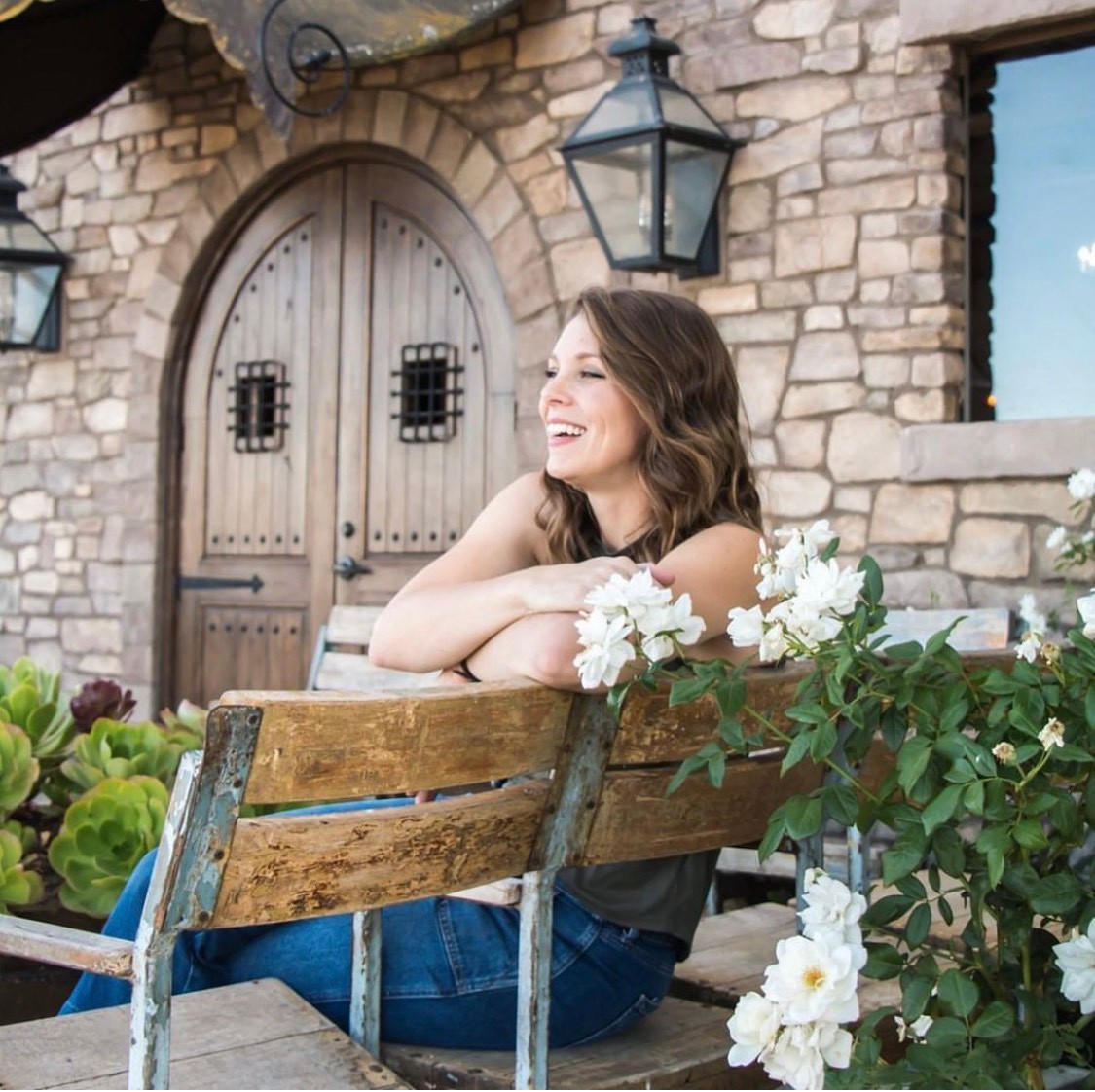

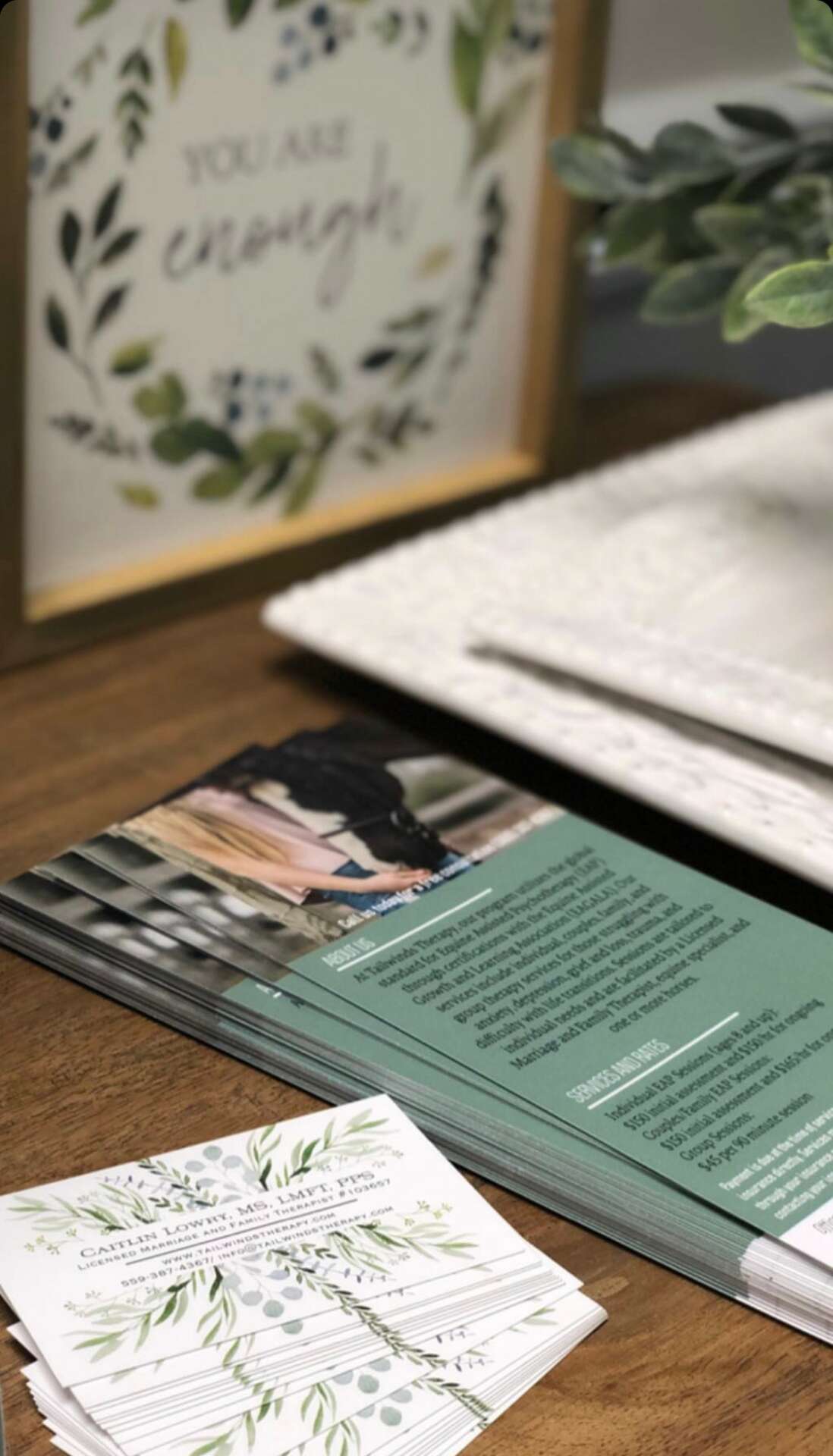
Have any books or other resources had a big impact on you?
I love audiobooks. I have a long commute transporting my kids to school in our little foothill community, so I spend a little over two hours in the car most days. I am not a big fan of novels, but I love learning, so I devour audiobooks about personal development, business strategy, and health and wellness. While it is hard to nail down what books have been most impactful for me, I honestly feel that the one that stands out the most is actually a children’s book.
I mentioned that early on in starting my business I had to make some big changes. One of those big changes involved re-starting my plans for providing Equine Assisted Services from scratch after needing to find a new location for services. I was facing a massive problem in my business and I was just a few months in. Things felt hopeless and I was stuck. I even wondered if I should just give up on my dream. My mom mailed me a new book for our boys called “What Do You Do With a Problem?” by Kobi Yamada.
This sweet little book follows a little boy who has a problem he is having trouble facing. He does not know what to do with it. He avoids it, and it grows and grows. Suddenly, he realizes the problem holds something inside– an opportunity.
I bawled when I read it the first time, and I still get tearful each time I read it.
I needed that book at that moment because as a business owner, problems are unavoidable. We cannot escape them, but we can change the way we look at them to see the opportunity each time they pop up.
While I could list a hundred business or personal growth books that I have loved and learned so much from, this simple children’s book, as well as others in the series, continue to have the greatest impact on me today.
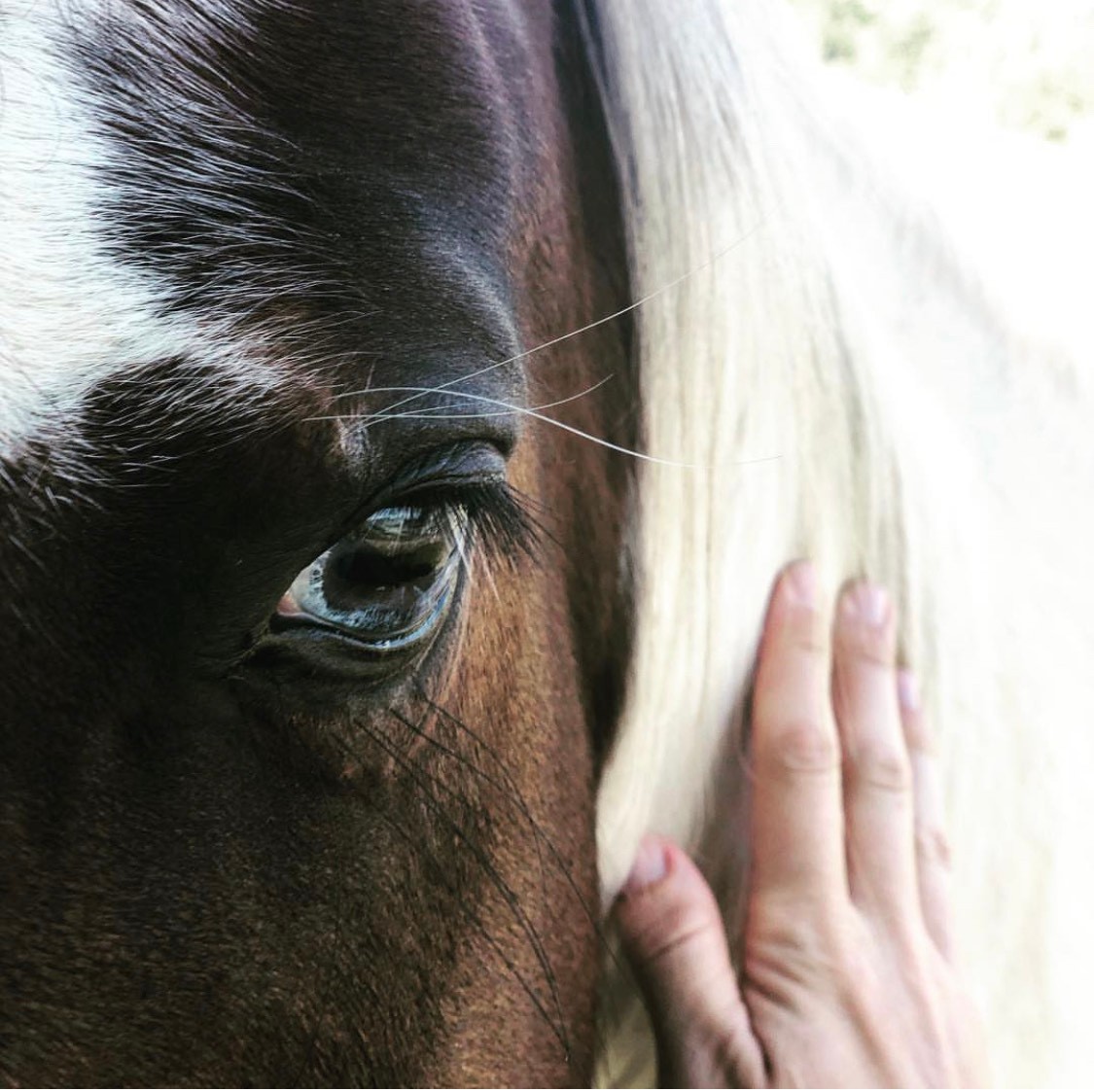
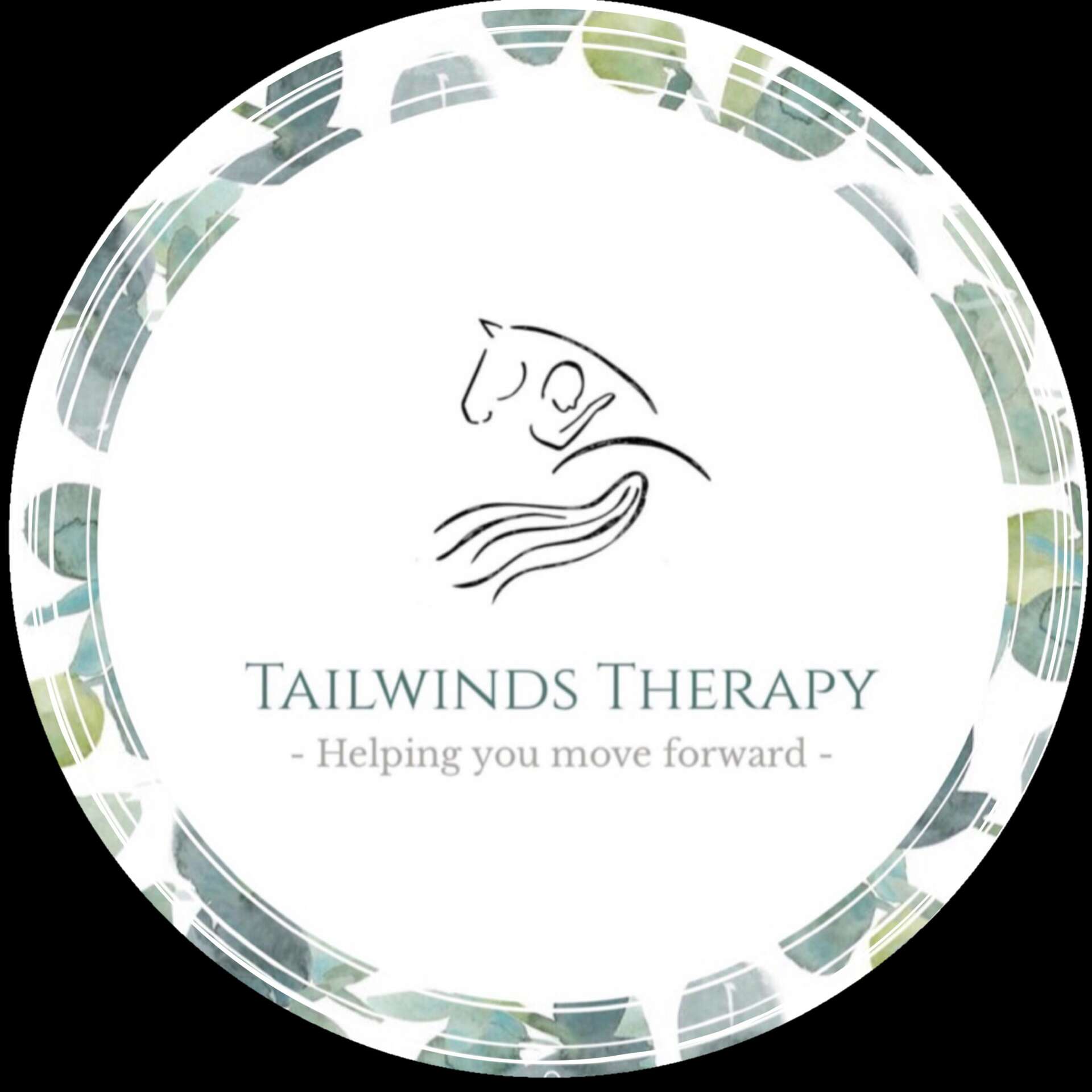
Can you tell us about what’s worked well for you in terms of growing your clientele?
I feel that my passion for the work we provide is communicated every time I speak with a prospective client or referral source. When you truly believe that the service you are offering will help the person, it does not require a fancy sales strategy or plan. It requires authenticity.
Additionally, I niched down our service offerings and I began to envision my ideal client when I developed my marketing strategies. I am honest and upfront with our new callers and I am careful to screen who would be the right fit for each service. We specifically offer mental health services, so when someone reaches out to our practice about needing therapeutic riding or physical therapy for their child, or any other service, I take the time to educate the caller about the services within the field. I always do my best to provide a link to the right referral if we cannot meet their needs.
This to me is not only part of our legal and ethical obligations as therapists, but it is also critical to helping clients get the care that they need. After all, most therapists enter the field because we want to help people, and are we really helping if we try to do it all?
Most of our referrals come from word of mouth from clients who have appreciated the care and genuineness that our providers offer. I feel that being genuine, compassionate, and providing quality services is what creates lasting rapport. When we truly help our clients, they are happy to send their friends and family referrals for our practice.
Contact Info:
- Website: www.tailwindstherapy.com
- Instagram: https://www.instagram.com/tailwindstherapy/
- Facebook: https://www.facebook.com/tailwindstherapy/
- Linkedin: https://www.linkedin.com/in/caitlin-lowry-02a14b192/
- Youtube: https://www.youtube.com/channel/UC1R2l162vdC8jjxtKaUpE7Q
- Other: https://www.psychologytoday.com/us/therapists/caitlin-lowry-clovis-ca/466752 “What Do You Do With A Problem?” Kobi Yamada: https://www.amazon.com/What-Do-You-Problem/dp/1943200009/ref=asc_df_1943200009/?tag=hyprod-20&linkCode=df0&hvadid=312678886999&hvpos=&hvnetw=g&hvrand=8629334096937346842&hvpone=&hvptwo=&hvqmt=&hvdev=c&hvdvcmdl=&hvlocint=&hvlocphy=9031808&hvtargid=pla-433661323102&psc=1
Image Credits
Brandon Lowry and Caitlin Lowry


